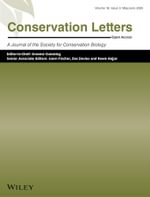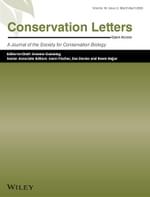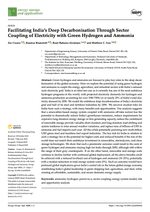PLOS Climate
Chausson A, Welden EA, Melanidis MS, Gray E, Hirons M, Seddon N (2023) Going beyond market-based mechanisms to finance nature-based solutions and foster sustainable futures. PLOS Clim 2(4): e0000169. https://doi.org/10.1371/journal.pclm.0000169
View Journal Article / Working PaperFailure to address the climate and biodiversity crises is undermining human well-being and increasing global inequality. Given their potential for addressing these societal challenges, there is growing attention on scaling-up nature-based solutions (NbS). However, there are concerns that in its use, the NbS concept is dissociated with the social and economic drivers of these societal challenges, including the pervasive focus on market-based mechanisms and the economic growth imperative, promoting the risk of greenwashing. In this perspective, we draw on recent research on the effectiveness, governance, and practice of NbS to highlight key limitations and pitfalls of a narrow focus on natural capital markets to finance their scaling up. We discuss the need for a simultaneous push for complementary funding mechanisms and examine how financial instruments and market-based mechanisms, while important to bridge the biodiversity funding gap and reduce reliance on public funding, are not a panacea for scaling NbS. Moreover, market-based mechanisms present significant governance challenges, and risk further entrenching power asymmetries. We propose four key recommendations to ensure finance mechanisms for biodiversity and NbS foster more just, equitable, and environmentally sustainable pathways in support of the CBD’s (Convention on Biological Diversity) 2050 vision of “living in harmony with nature”. We stress that NbS must not be used to distract attention away from reducing emissions associated with fossil fuel use or to promote an agenda for perpetual economic growth and call on government policy makers to decenter GDP growth as a core economic and political target, refocusing instead on human and ecological well-being.




